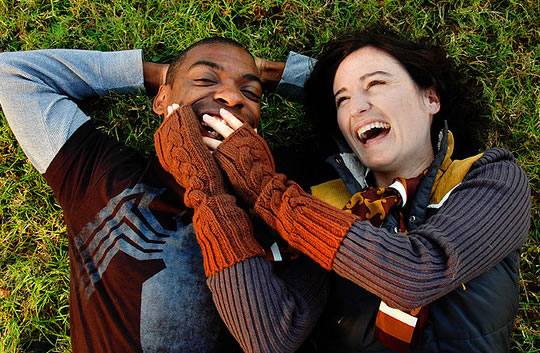Five prosocial activities proven to be perfect for boosting happiness and well-being.
There’s one key thread that links these five simple ways of feeling happier and enhancing life.
It’s unselfish behaviour that is not only good for us but also for the people around us.
They’re great reminders for this time of year…
1. Sleep to feel grateful
People who feel more grateful are happier with their lives, have more hope and more positive attitudes.
But how can you feel more gratitude?
One option is to get a little more sleep because sleep makes people feel more grateful, according to a University of California study.
Dr. Amie Gordon, who led the study said:
“…our research […] is the first to show that everyday experiences of poor sleep are negatively associated with gratitude toward others — an important emotion that helps form and maintain close social bonds.”
The knock-on effects of getting more sleep are felt by all the family, Dr. Gordon explained:
“…people reported feeling less appreciated by their partners if they or their partner tends to sleep poorly, suggesting that the lack of gratitude is transmitted to the partner.”
2. Notice a kind gesture
It’s easy to take other people for granted.
But, being grateful to others partner for any little kindnesses they do can make all the difference to a relationship.
Research by Dr. Sara Algoe and colleagues, found that gratitude helps to maintain intimate relationships.
Algoe said:
“Feelings of gratitude and generosity are helpful in solidifying our relationships with people we care about, and benefit to the one giving as well as the one on the receiving end.
Gratitude triggers a cascade of responses within the person who feels it in that very moment, changing the way the person views the generous benefactor, as well as motivations toward the benefactor.
This is especially true when a person shows that they care about the partner’s needs and preferences.”
So, say thank you to those around you.
3. Give away time to feel time-rich
It may sound counter-intuitive, but psychological research shows that when people give away their time, they actually feel they have more time themselves.
Not only that, explain the study’s authors Michael Norton and Elizabeth Dunn:
“In fact, giving time away alleviates people’s sense of time famine even more than receiving unexpected windfalls of free time.”
And that is apart from the good feelings you engender in other people.
4. Give away money to feel wealthy
It’s not just giving away time that makes you feel good.
Studies from all around the world, in India, Canada, South Africa and the US, consistently tell us that, paradoxically, giving away money makes people feel more wealthy.
Again, that’s apart from the gratitude that people feel towards you.
5. Buy experiences to be happy
At a time of year when many people are buying goods, according to the psychological research it might be better to spend on experiences.
Clothing, jewellery and electronic gadgets are all very well, but it’s often a concert, vacation, or meal out that lives long in the mind.
Experiences are also easier to talk about with others, which is another way they continue to give us pleasure long after they are over.
• Want more suggestions? Read on: 10 Ways Gratitude Can Change Your Life & 4 Step Gratitude Plan and 10 Easy Activities Science Has Proven Will Make You Happier Today.
Image credit: Sam Stanton

